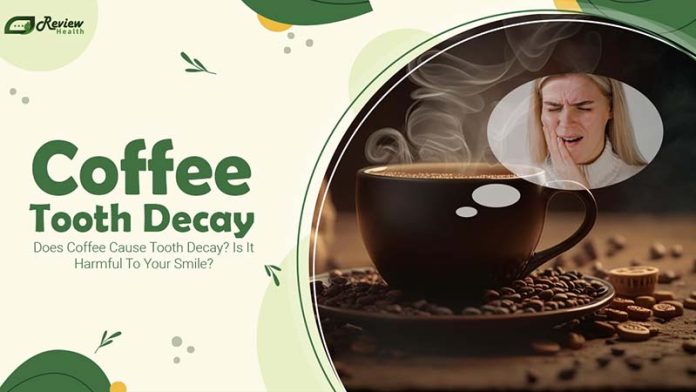Does coffee cause tooth decay? Coffee can indeed contribute to tooth decay, especially when compared to drinking water. Drinking a lot of black coffee, which is notably acidic, can weaken your enamel. This creates conditions that favor bacterial growth in your mouth, potentially leading to tooth decay and even gum disease. Below, we explore how coffee affects our oral health and offer tips on how to mitigate these effects. Keep reading on Review Health for more insightful tips to keep your smile bright and healthy.
Does Coffee Cause Tooth Decay?
Despite the many health benefits of coffee, drinking too much can harm your teeth. Research shows that coffee’s acidity can weaken your enamel, the outer layer of your teeth, which increases your risk of cavities and makes your teeth more sensitive. If you add sugar or creamers to your coffee, it makes tooth decay more likely because sugar combines with saliva to form plaque that damages enamel faster.

Coffee is also linked to bad breath. Its strong scent, combined with its acidic and sugary ingredients, promotes the growth of bacteria that cause odors and cavities.
Besides cavities and bad breath, coffee can also stain your teeth. The acid and enamel erosion expose the yellowish dentin underneath, giving your teeth an undesirable yellow tint that can lower your self-esteem.
Related articles
- Does vaping cause tooth decay? Unveiling the Hidden Impact of Vaping on Oral Health
- How Do You Prevent Tooth Decay With Braces
- Black Tooth Decay: Causes and Treatments for Black Teeth
The Connection Between Coffee and Tooth Decay
While coffee isn’t directly responsible for tooth decay, its acidic nature can affect dental health. Coffee’s acidity can soften enamel, making it more prone to erosion and decay, especially when consumed often. The acid temporarily lowers the mouth’s pH, encouraging enamel demineralization.
Surprisingly, coffee also has some benefits for oral health. Studies indicate that coffee and tea have antibacterial properties that can inhibit Streptococcus mutans, a leading cause of tooth decay. Roasted coffee beans may prevent these bacteria from sticking to tooth surfaces.
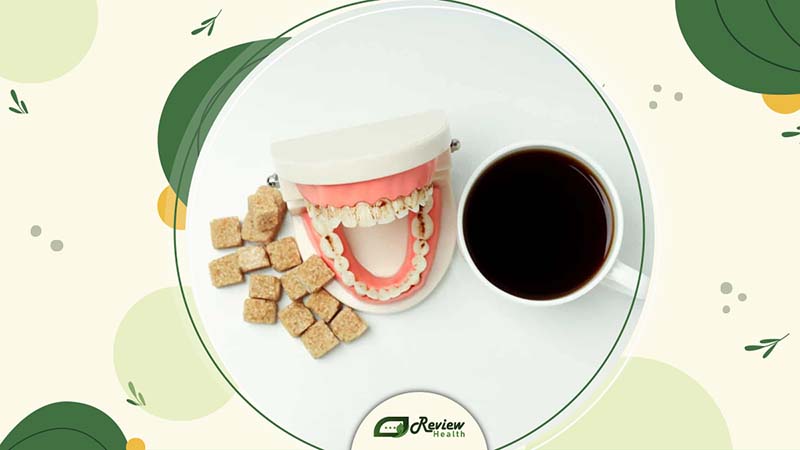
Moderate coffee consumption (more than 150 mL per day) has been linked to a reduced risk of tooth erosion. This protective effect may come from compounds like fluoride, which are naturally present in tea and also found in coffee. One study showed that people who drank a lot of coffee or tea had a 42% lower risk of tooth erosion compared to those who drank less.
So, while coffee can impact your teeth, it doesn’t directly cause decay and may offer some benefits. The best approach is to maintain good oral hygiene, rinse with water after drinking coffee, use a soft-bristled toothbrush, and avoid excessive consumption.
How to Prevent Tooth Decay After Drinking Coffee
Thankfully, there are several effective strategies to mitigate the potential harm caused by coffee and similar acidic beverages. Let’s explore some ways to safeguard your teeth from damage:
Rinse With Water After Drinking Coffee
After indulging in an acidic beverage like coffee, it’s beneficial to follow up with a glass of water. Rinsing with water helps wash away residual acidity clinging to your teeth, reducing the risk of enamel erosion and decay. Not only does this practice aid in preserving your dental health, but it also promotes overall hydration. While coffee itself is unlikely to dehydrate you significantly, increasing your water intake is always a wise choice for maintaining optimal health.

Delay Brushing After Drinking Coffee
While it might seem logical to brush your teeth immediately after drinking coffee, it’s best to wait at least 15 minutes before brushing. This short break allows your enamel to remineralize and recover from acid exposure, minimizing potential damage. This applies not only to coffee but to all acidic beverages.
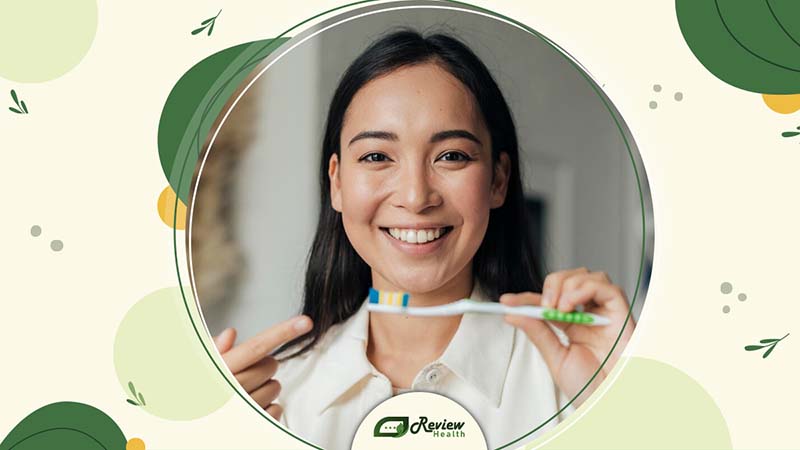
Use a PH Balanced Mouthwash
Incorporating a pH-balanced mouthwash into your oral care routine can help neutralize acidity in the mouth following coffee consumption. By restoring a balanced pH level, these mouthwashes aid in protecting your teeth against decay and enamel erosion.
Choose Your Coffee Wisely
Select high-quality coffee with lower acidity levels because it’s less harsh on your teeth. Additionally, limit the amount of sugar and creamer you add to your coffee to reduce the risk of cavities and enamel erosion.
Use a Straw When Drinking Coffee
Consider sipping your coffee through a straw to minimize direct contact between the beverage and your teeth. Consider eco-friendly straws, like reusable or paper ones, to minimize environmental impact. Drinking coffee through a straw reduces stains and enamel damage on your front teeth.

Foods to Eat With Coffee to Protect Teeth
Surprisingly, some foods can aid in protecting your teeth when consumed alongside coffee. Here are a few options worth considering:
Cheese: Cheese is a calcium-rich food that promotes tooth strength and guards against decay. Additionally, its texture can assist in removing coffee stains from your teeth.

Low-Acidity Fruits, such as Apples: Crunchy fruits like apples can serve as natural abrasives, helping to scrub away plaque and coffee stains from the surface of your teeth.
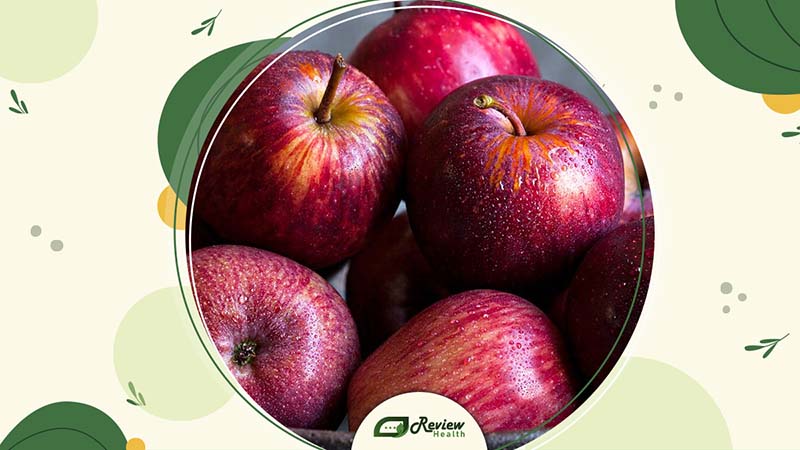
Low-Sugar Cereals: Choosing low-sugar cereals can complement your coffee consumption by neutralizing acidity in your mouth while offering a satisfying crunch.
Including these foods in your diet along with your coffee can improve oral health and help reduce the potential negative effects of acidic drinks.
See more: Healthy Food List: 12 Best Foods That Prevent Tooth Decay and Tips for Cavities
Foods to Avoid When Drinking Coffee
On the other hand, some foods should be avoided when having coffee, as they can worsen its negative effects on your teeth. These include:
Sugary Snacks: Sugar is a primary culprit behind tooth decay, so it’s best to refrain from indulging in sugary treats such as doughnuts, muffins, and pastries while sipping on your coffee.
Citrus Fruits: Citrus fruits like oranges and grapefruits may seem refreshing, but their high acidity levels can exacerbate enamel erosion when consumed alongside coffee. Opting for low-acidity fruits or avoiding citrus altogether can help safeguard your dental health.
By avoiding these foods when drinking coffee, you can minimize the risk of dental issues and maintain a healthier smile.
See More: List of Foods That Cause Tooth Decay: What to Avoid
Alternatives to Coffee
If you’re seeking alternatives to coffee that are gentler on your teeth, consider the following options:
Green Tea: Green tea boasts lower acidity levels compared to coffee, and it contains compounds known to inhibit tooth decay. Enjoying a cup of green tea can provide a satisfying beverage option while promoting dental health.

Herbal Tea: Herbal teas such as chamomile and peppermint offer caffeine-free alternatives that won’t contribute to tooth staining. These soothing beverages are gentle on your teeth and come in a variety of flavors to suit your preferences.
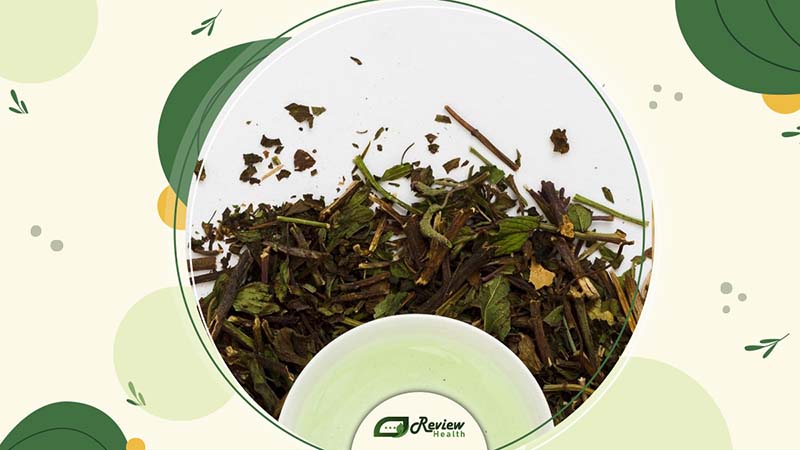
Water: While it may not provide the same caffeine boost as coffee, water is indispensable for maintaining optimal oral health and overall wellness. Staying hydrated supports saliva production, which helps rinse away food particles and bacteria, reducing the risk of tooth decay and gum disease.
Incorporating these alternatives into your beverage rotation can diversify your options while promoting a healthier smile.
Frequently Asked Questions
Does Coffee Cause Bacterial Growth?
No, coffee itself does not promote bacterial growth. In fact, coffee’s acidity and antimicrobial properties can inhibit the growth of certain bacteria. However, when coffee is left at room temperature for too long, it can become a breeding ground for bacteria from the environment.
How Is Coffee Bad for Your Teeth?
Coffee can adversely affect your teeth in several ways. Firstly, it contains tannins that can cause staining, leading to yellowing of the teeth with regular consumption. Additionally, the acidity of coffee can contribute to the erosion of tooth enamel over time. This erosion increases the risk of cavities and other dental issues if proper oral hygiene practices are not maintained.
How to Enjoy Coffee Safely?
Coffee has some benefits, but too much coffee or adding lots of sugar and creamer can still hurt your teeth. To reduce the risk of cavities, try drinking coffee without sugar or creamer. If you can’t give up the sweetness, limit your coffee to once a day and remember to brush and floss twice daily to keep cavities at bay.
These answers aim to address common concerns regarding coffee and its impact on dental health.
Conclusion
Now that you understand the impact of coffee on dental health and know how to reduce potential risks, you’re ready to make informed choices. So, does coffee cause tooth decay? While it can contribute if consumed excessively or with too much sugar, you can still enjoy your daily cup by following the right dental hygiene practices.
Remember, dental care is a continuous journey. Visit Review Health for more valuable tips to further improve your dental health. With just a few quick reads, you can take proactive steps to maintain excellent oral hygiene and keep your smile shining for years to come!
Source:

